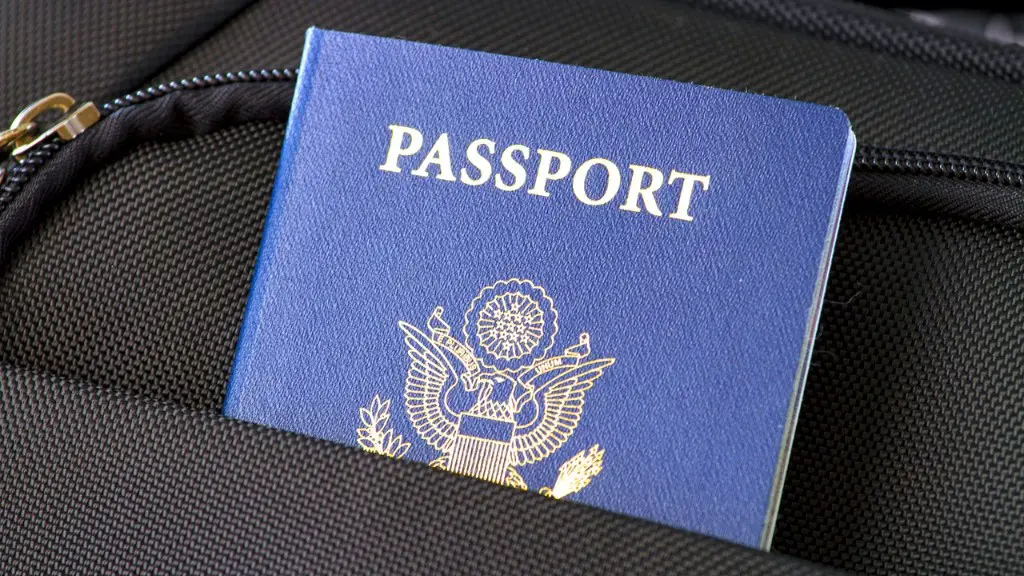There are a lot of people who don’t know how travel medical insurance works. Basically, travel medical insurance is a type of insurance that covers the medical expenses of individuals while they are traveling. This type of insurance is different from regular health insurance because it covers medical expenses that are incurred while traveling.
There is no one answer to this question as each travel medical insurance policy can vary slightly in terms of what it covers and how it works. However, in general, most travel medical insurance policies will provide coverage for unexpected medical expenses that are incurred while traveling outside of your home country. This can include things like doctor’s visits, hospital stays, emergency medical evacuation, and more. Typically, you will need to pay a deductible and/or coinsurance before your policy kicks in, and there may be some coverage limits in place. Be sure to read the fine print of your policy before you purchase it so that you know exactly what is and is not covered.
How does health insurance work when traveling abroad?
If you’re traveling abroad, it’s a good idea to purchase travel medical insurance as a supplement to your regular health insurance. Travel medical coverage is only valid while you’re traveling, so it won’t cover you if you get sick or injured after you return home.
A basic travel insurance policy can cost as little as $1-$5 per day, but more comprehensive protection can cost several hundred dollars per month. Medical evacuation and emergency treatment while abroad are two examples of more comprehensive coverage.
How does health insurance work on vacation
Travel medical insurance is a type of insurance that pays for emergency medical expenses during a trip. If you are traveling and have an unexpected illness, injury or medical condition that’s covered by your travel medical insurance, the plan will reimburse you, up to the plan limits.
If you’re planning a trip, it’s a good idea to look into travel medical insurance. This type of insurance can help cover the cost of medical care if you get sick or injured while traveling. Travel medical insurance is offered either as part of comprehensive travel insurance plans, or may be purchased as a stand-alone plan. If you have a comprehensive plan, you may also be covered by other travel-related coverages, such as trip cancellation or interruption.
What does travel insurance not cover?
If you’re planning a trip, it’s important to know what your travel insurance policy covers. According to Allianz Global Assistance, a travel insurance provider, “Trip cancellations and trip interruptions due to known, foreseeable, or expected events, epidemics, or fear of travel are generally not covered.” So, if you’re worried about contracting a disease while traveling, or you’re concerned that an event might cause your trip to be interrupted, you may not be covered. Be sure to read the fine print of your policy before you buy to make sure you’re getting the coverage you need.
There are a few key differences between travel insurance and international health insurance. Travel insurance is designed for holidaymakers to cover cancellations, personal belongings and emergency medical treatment, whereas international health insurance is designed to cover inpatient treatment check-ups and continuing treatment of chronic conditions abroad.
One of the main differences is that international health insurance usually provides a much higher level of cover, as it is designed to cover more serious health issues. It is also typically more expensive than travel insurance.
Another key difference is that international health insurance usually has no upper age limit, whereas travel insurance often has an upper age limit of around 70 or 80. This is because older people are more likely to need medical treatment while abroad.
So, if you are planning to travel overseas, it is important to check whether you need travel insurance or international health insurance.
Does travel insurance cover doctor visits?
When travelling outside the United States, it is important to be aware of the differences in medical care and coverage. Many travel medical insurance plans do not provide coverage for outpatient services such as doctor’s office visits. It is important to check with your insurance provider to see what coverage is available to you while travelling.
The US government does not provide insurance for US citizens traveling overseas. We do not pay medical bills or unexpected costs. We highly recommend that you purchase insurance before you travel.
What medical conditions do you need for travel insurance
When buying travel insurance, it is important to disclose any pre-existing medical conditions in order to ensure that you are covered in the event of an emergency. Some of the most common pre-existing medical conditions that need to be disclosed include heart conditions, high blood pressure and high cholesterol, diabetes, asthma and respiratory problems, chronic illnesses, joint and bone inflammation, and mental health issues.
If you find yourself in a medical emergency while traveling, the nearest US embassy or consulate can help you locate medical services and notify your friends, family, or employer of the situation. They are available for emergencies 24 hours a day, 7 days a week, overseas and in Washington, DC. You can reach them at (888) 407-4747 or (202) 501-4444.
Do I need health insurance to travel?
Before you travel, you should consider getting travel insurance. Travel insurance can cover you in case of delays, accidents, or illness while you are on your trip. Your current medical insurance may not cover you in another country, so travel insurance can be a lifesaver. There are different types of travel insurance, so be sure to do your research to find the right policy for you.
When shopping for travel insurance, it’s important to consider the length of your trip. Typically, policies can last up to one year, but this can vary depending on the policy. The length of your trip is one of the primary factors that determines the premium for a policy. Other factors that affect premium costs include the total cost of your trip and the ages of each traveler.
How much does travel insurance cost for a week
The cost of travel insurance can vary widely depending on the insurer, and it is important to shop around to find the best rate. Our study found that the average cost of travel insurance in the US is $95 for a one-week international trip. However, we found that prices can range from a low of $39 to a high of $210.
There are two main types of travel insurance: Vacation Plans and Travel Medical Plans. Vacation Plans provide the most coverage, including trip cancellation, while Travel Medical Plans provide medical coverage while traveling abroad.
How much does international health insurance cost?
There are a variety of factors that will affect the cost of your international health insurance, such as your age, the country you live in, and the type and level of coverage you need.
There are three types of travel insurance coverage: medical insurance, cancellation/interruption insurance, and luggage insurance.
Medical insurance covers you in case you need medical attention while traveling. This can include everything from emergency medical evacuation to medical bills incurred while abroad.
Cancellation/interruption insurance covers you if you have to cancel or interrupt your trip for a covered reason, such as a sick family member. This can reimburse you for lost prepaid expenses, like airfare or hotels.
Luggage insurance covers you if your luggage is lost, stolen, or damaged while you are traveling. This can reimburse you for the cost of replacing your lost or damaged items.
What is the most common travel insurance claim
Most travel insurance policies will cover you for flight delays, but they typically pay out in blocks of hours. So if your policy covers you for “$100 for every full 6 hours”, you would only get $100 even if your flight is delayed for 8 hours.
If you have travel insurance, you may be reimbursed for some of the money you’ve lost on a non-refundable trip. However, the insurer will likely require documentation from the supplier showing how much of the trip cost is non-refundable.
Warp Up
When you purchase travel medical insurance, you are essentially buying a policy that will cover your medical expenses while you are away from home. This can include things like doctor visits, hospital stays, and even evacuation back to your home country if necessary. The details of what your policy covers will vary depending on the insurer, but in general, you can expect your travel medical insurance to cover you for unexpected illnesses and accidents while you are away from home.
There are many different types of travel medical insurance, but they all typically work by providing financial protection in the event that you need medical care while traveling. Some policies will cover the cost of medical treatment, while others may provide reimbursement for expenses incurred. It’s important to read the fine print of any policy before purchasing it, so that you know what is and is not covered.





